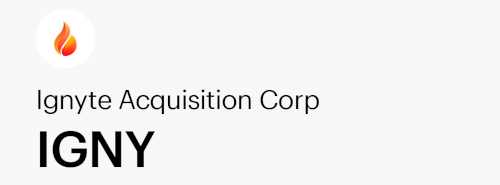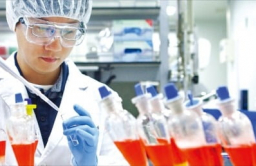-
KOSPI 2812.05 +41.21 +1.49%
-
KOSDAQ 756.23 +6.02 +0.80%
-
KOSPI200 376.54 +6.64 +1.80%
-
USD/KRW 1373 3.00 -0.22%
Korea’s Peak Bio makes Nasdaq debut via SPAC deal with Ignyte
Bio & Pharma
Korea’s Peak Bio makes Nasdaq debut via SPAC deal with Ignyte
The Kosdaq’s tough IPO requirements prod Korean biotech startups to turn to the Nasdaq for fundraising
By
Oct 28, 2022 (Gmt+09:00)
3
Min read
News+

Peak Bio Co., a South Korean biopharmaceutical company, is debuting on the Nasdaq through a merger with US blank cheque company Ignyte Acquisition Corp. – a move widely seen as prompting other Korean biotech startups to follow suit to raise money.
Shareholders of Ignyte, a Nasdaq-listed special purpose acquisition company (SPC), recently approved a proposed merger with Peak Bio.
“Shares of the new combined entity will begin trading on the Nasdaq next month,” said an industry source on Friday.
Peak Bio’s deal with Ignyte marks the first time a Korean biotech venture company will list on the Nasdaq via a SPAC mechanism.
In April, Peak Bio’s parent pH Pharma Co. and Ignyte agreed on the business combination to allow the Korean clinical-stage biopharmaceutical firm to go public through a backdoor listing on the US tech-heavy stock exchange.
To facilitate the deal, pH Pharma transferred some of its new drug candidates to Peak Bio.

The combined company, to be led by Huh Ho-young, chief executive of Peak Bio, will be traded on the Nasdaq under the ticker symbol “PKBO,” according to pH Pharma and Ignyte.
The partners said the merger will put the new entity’s corporate value at $278 million, and its initial Nasdaq trading will fetch $82.5 million in gross proceeds.
Proceeds from the merger transaction are expected to provide Peak Bio with capital to further develop its clinical-stage programs.
Peak Bio specializes in developing next-generation therapeutics to treat oncology and inflammatory diseases.
HARBINGER OF MORE SPAC-LED NASDAQ DEBUTS
Industry watchers said the Peak Bio move will prod other smaller Korean companies to target SPAC-led US IPOs amid stiffer regulatory scrutiny in Korea for listings.
pH Pharma, established by Huh, who previously worked for French multinational pharmaceutical company Sanofi S.A., tried in early 2020 to list its shares on the Kosdaq to raise funds for its biotech research projects.

But the company dropped the plan due to the Korea Exchange’s (KRX) tough listing requirements for biotech startups.
In Korea, biotech startups often go public through eased rules for companies with promising technologies.
But requirements for such listings have become stricter following a series of wrongdoings perpetrated by owners of biotech startups, which caused losses for retail investors.
Startups that have gone public via special favors also must meet sales requirements to remain listed on the Korean stock market.
Such companies could face delisting if they can’t achieve 3 billion won ($2.1 million) in annual sales within five years of their market debut.
“A new drug development usually requires more than 10 years of R&D work and hundreds of billions of won,” said an industry official. “Due to the sales conditions, some listed biotech firms are busy making money by selling products rather than working on new drug development.”
SK Pharmteco, a unit of SK Inc., and the US affiliate of Korean biotech firm NKMax Co. are also considering going public on the Nasdaq, which offers startups a good opportunity to raise money from global investors that recognize their technologies.
The US controls about half of the world’s pharmaceutical and biotechnology market.
“In the US, it is easier to catch up with global tech trends and raise funds. Also, you can build a network of officials from regulators such as the FDA,” said an industry official.
Write to Jae-Young Han and Jeong-Min Nam at jyhan@hankyung.com
In-Soo Nam edited this article.
More To Read
-
 Bio & PharmaKorean bio ventures struggle with fundraising
Bio & PharmaKorean bio ventures struggle with fundraisingMar 01, 2022 (Gmt+09:00)
-
Apr 22, 2022 (Gmt+09:00)
-
Mar 04, 2022 (Gmt+09:00)
-
Feb 24, 2022 (Gmt+09:00)





